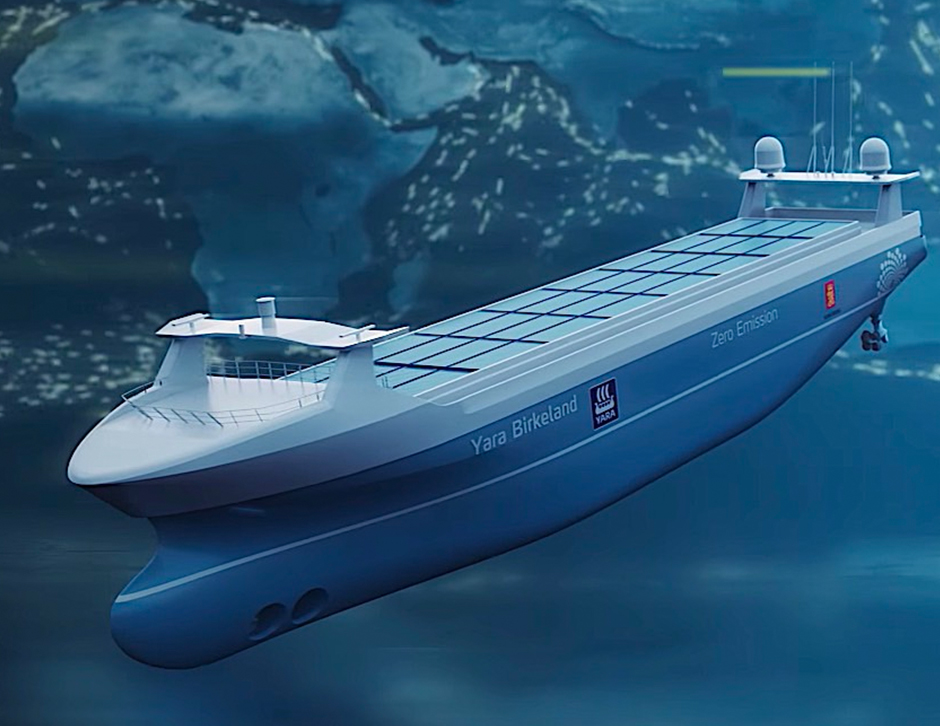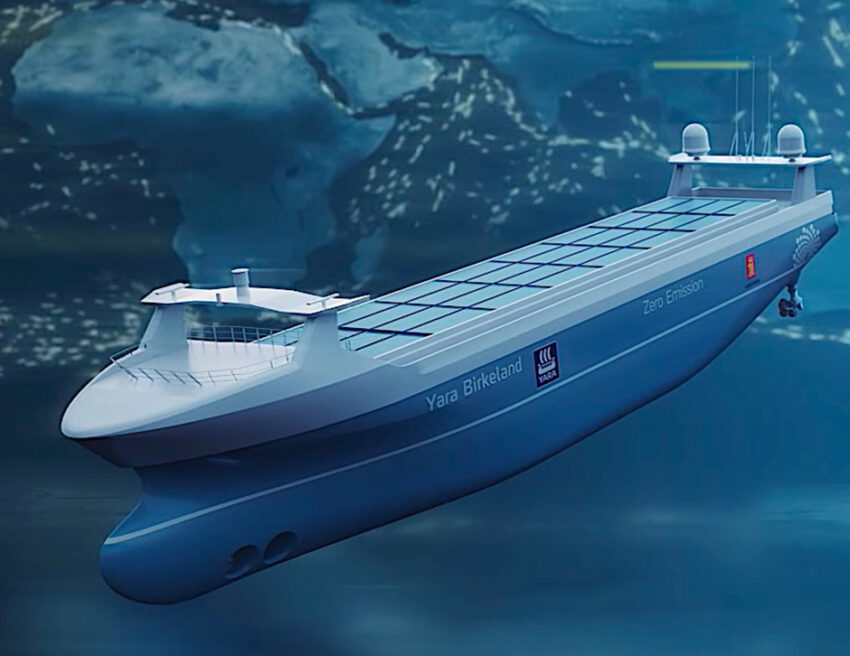Last week, the container shipping industry was abuzz with excitement regarding the news of the world’s first electric autonomous cargo ship. Over the last decade, the idea of self-driving vehicles has transformed from a Sci-Fi project to reality. Now the transportation and logistics industry is waiting for the next giant leap- viz the introduction of autonomous cargo ships. Companies like Yara, Nippon Foundation, Rolls Royce, Navantia, and Kongsberg are experimenting with cutting-edge technology that will allow self-steering ships to ply the ocean. This post will provide you with a brief introduction to this new endeavour of the ocean freight shipping industry.

What are autonomous ships?
Simply put, any sea vessel that can navigate without human intervention and with the help of artificial intelligence programmes is called an autonomous ship. They are a great step forward for the container shipping industry. Autonomous ships are constantly in the news because of its capacity to make sea freight shipping profitable and more agile. Moreover, they will also have a massive impact on the functioning of the ports.
Presently the autonomous vessels can be divided into 4 major categories:
- Vessels with several automated processes that still require the presence of crew on board
- Ships that can be controlled from a distance and doesn’t require the presence of the full crew
- Remotely controlled ships that can operate without a crew
- Fully self-steering vessels with an operating system capable of making decisions
One of the greatest advantages of these ships is the near elimination of all human errors. Additionally, the presence of fewer crew members will imply less onboard maintenance while shipping. Therefore, autonomous ships will greatly reduce the expenses of the ocean freight shipping sector. Most importantly, the autonomous ships will use more sustainable fuels like hydrogen or even electricity. This in turn will reduce the environmental impact of the container shipping industry.
A look at the several autonomous ships endeavours around the globe
Rolls Royce and Finferries
Back in 2018, Rolls Royce partnered with Finland’s government-owned ferry operator Finferries to create the world’s first autonomous ferry. Falco- a car ferry navigated the waters without any human intervention during its journey from Parainen and Nauvo, Finland. The Falco which comes with several advanced sensors was capable of determining its surroundings with an unparalleled level of accuracy.
Navantia
A Spanish tech giant Navantia Sistemas came up with an aluminum autonomous ship that has been actively operating for the Port of Ceuta. Navantia created the boat called USV Vendaval in partnership with AISTER, a prominent player in the marine industry. The USV Vendaval can navigate autonomously and can even undertake activities like sea traffic control, surveillance, and castaway rescue missions.
Nippon foundation
Nippon Foundation is working on the ambitious plan to automate up to 50% of Japan’s local ships in the next twenty years. To this end, they have received the backing of Nippon Yusen the largest shipping company in the country. To quote the General Manager of Nippon Yusen, “When it comes to the automation of ships, our mission is to have Japan lead the rest of the world…We need this technology to be recognized, otherwise, actual implementation in society will not move forward.”
Nippon Foundation is undertaking the DFFAS (Designing the Future of Full Autonomous Ship) project. This project is a comprehensive system aimed to facilitate the operations of crewless autonomous vessels. By February 2022 they are planning to run an automated container ship from Tokyo Bay to a coastal city called Ise. This 236-mile voyage will determine the efficacy of self-steering ships in an area with high marine traffic.
Yara
Norwegian fertilizer manufacturer Yara teamed up with tech company KONGSBERG to come up with the Yara Birkeland- the world’s first fully autonomous, zero-emission cargo ship. Additionally, this vessel will lower the emission of CO2 and Nitrogen Oxide, enhance road safety, and even lower sound pollution. Starting next year, this 87 yards vessel will replace truck haulage by 40,000 trips a year between Porsgrunn and Brevik. KONGSBERG will be in charge of all the technical aspects of this ship. This includes sensors, control systems, batteries etc. Last week, the Yara Birkeland made its maiden voyage in the Oslo fjord.
In the words of Svein Tore Holsether the CEO of Yara, “We are proud to be able to showcase the world’s first fully electric and self-propelled container ship. It will cut 1,000 tonnes of CO2 and replace 40,000 trips by diesel-powered trucks a year.” The Yara Birkeland is capable of loading and offloading the freight, navigate and recharge its batteries without any human intervention. Furthermore, the sensors will allow the ship to easily detect any object on its way so that it can avoid hitting anything. To begin with, the ship will do two trips a week shipping 120 twenty-foot containers of fertilizers each time. “Now we have taken this technological leap to show it is possible, and I’m thinking there are so many routes in the world where it is possible to implement the same type of ship,” adds Mr. Holsether.


